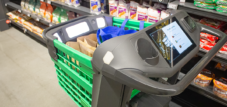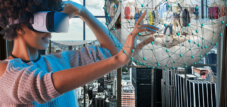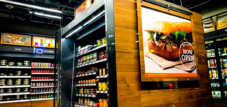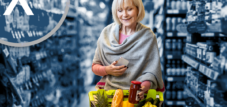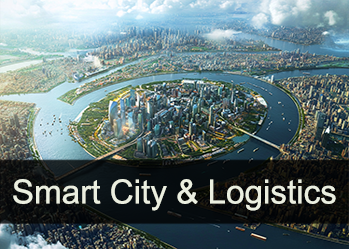Smart shopping business models: 30 innovative ideas and variants that have emerged around the new shopping in recent years
Language selection 📢
Published on: November 29, 2024 / Update from: November 29, 2024 - Author: Konrad Wolfenstein
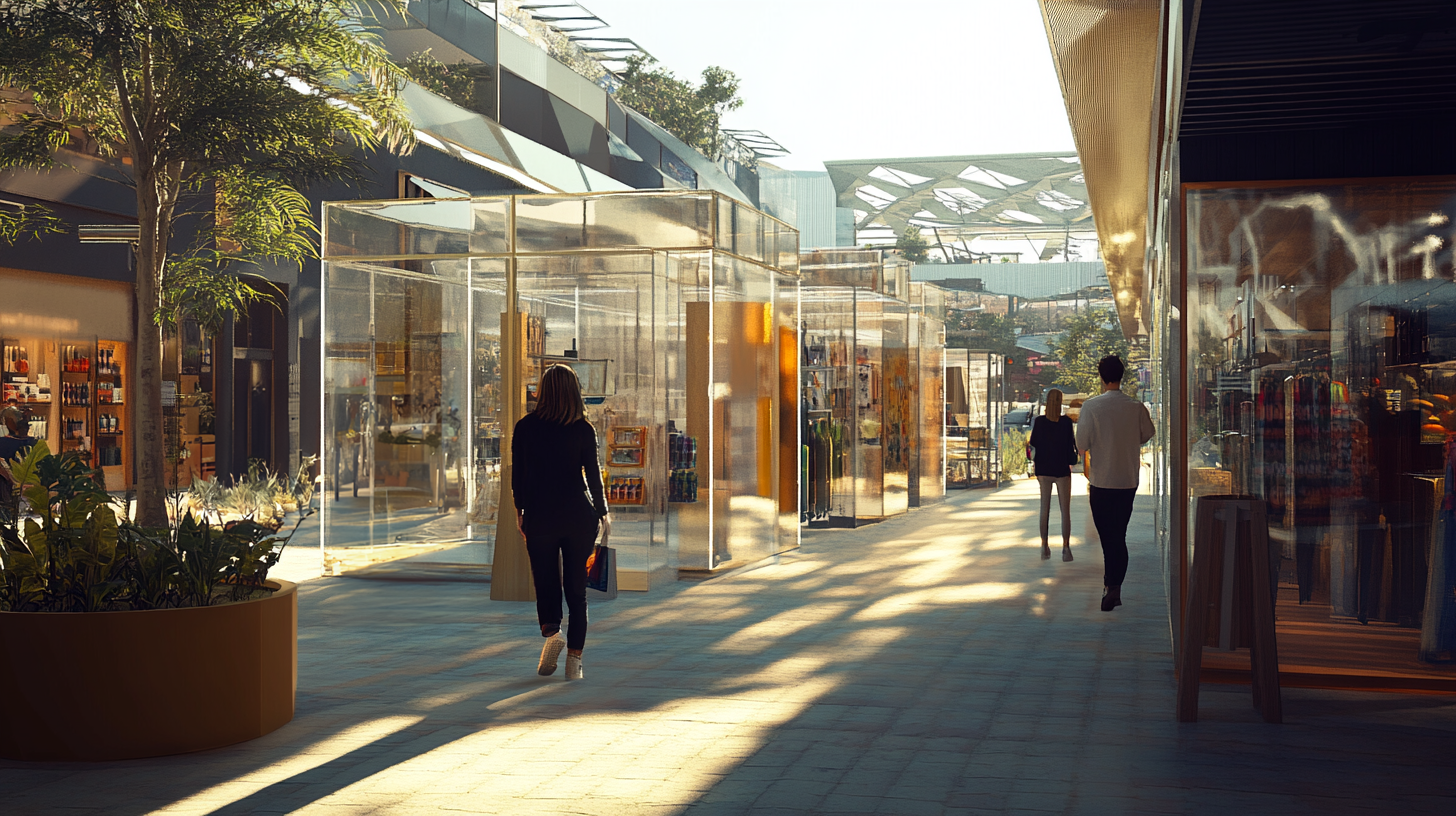
Smart shopping business models: 30 innovative ideas and variants that have emerged around the new shopping in recent years - Image: Xpert.Digital
🍔✨ Future of retail: Innovative business models, technology and convenience
🛒💡 In recent years, numerous innovative business models have developed in the retail sector that are revolutionizing the shopping experience through the use of technology and new concepts. Here are some of the most notable developments:
Innovative business models in retail
🛍️ Autonomous and cashierless stores
Just Walk Out technology
Pioneers like Amazon and Alibaba have introduced stores where customers can simply pick products off the shelves and leave the store without having to pay at a checkout. Payment is made automatically via an app or account.
Unmanned Smart Stores
These stores are completely autonomous and do not require any staff. Often found in busy areas or on public transportation, they allow customers to select products, pay, and enter or exit the store without human interaction.
🛒 Smart shopping carts
Technologically advanced shopping carts
These shopping carts are equipped with touch displays, cameras and sensors that automatically recognize and add products to the digital shopping cart. They also provide navigational aids within the store.
🌐 Phygital trading
Combination of physical and digital experiences
Phygital retail integrates online and offline shopping experiences to provide an interactive and personalized customer journey. This includes smart fitting rooms and the use of augmented reality (AR) to provide additional product information.
⏰ Japanese-style convenience stores
Conbini concept
Japanese convenience stores (Conbini) offer a wide range of products around the clock and are increasingly incorporating new technologies such as cashless payment systems and automated services to further increase convenience.
Suitable for:
🌱 Sustainability and technology in the supermarket
Energy efficient technologies
Supermarkets rely on LED lighting, energy-efficient refrigerators and photovoltaic systems to reduce their carbon footprint. Digital price tags and inventory management systems help to use resources more efficiently.
📱✨ The digital retail of tomorrow: More convenience for customers
These innovative approaches show how retail is not only becoming more efficient but also more customer-friendly through the use of technology. The combination of convenience, personalization and sustainability is at the heart of these developments, which aim to shape the shopping experience of the future.
🛍️🤖 Smart Shopping Business Models: A Comprehensive Analysis
🏪✨ Retail has evolved rapidly, driven by technological innovations and changing consumer needs. The idea of “smart shopping” is at the heart of this development and encompasses a variety of business models that aim to revolutionize the shopping experience. These models utilize advanced technologies to maximize comfort, efficiency and customer satisfaction. A look at the 30 innovative ideas and variants shows how diverse and dynamic modern retail has become.
🏪 Influence of Japanese Conbinis
A notable role model for many of these new business models are the so-called Conbinis in Japan. These 24-hour shops have proven to be extremely successful by offering a wide range of products and services around the clock. They combine the convenience of a mini-market with the efficiency of a discounter and have served as inspiration for the advancement of convenience stores worldwide.
Suitable for:
- Conbini Shopping in Japan: Did you know? The 24-hour shops, so-called Konbinis, are an adaptation from the USA
- Smart Shops 24/7 & Stores 365: Closing supply gaps with Grab & Go technology, vending machines (regiomats) and checkout self-checkout systems
🚀 Technological innovations in retail
1. Grab & Go
These stores allow customers to pick items directly from the shelves and leave the store without having to pay at a checkout. Billing takes place automatically via sensors and cameras that record the purchase.
2. Autonomous Retail System (ARS)
Fully automated systems use artificial intelligence (AI) and sensors for purchasing, billing and inventory management. This technology reduces staffing requirements and increases efficiency.
Suitable for:
3. (Smart &) Walk-In Stores
These stores offer a seamless checkout-free shopping experience through the use of IoT (Internet of Things) technologies and advanced sensing.
4. Just Walk Out Shops
Similar to Grab & Go, these formats allow customers to take products with them while the payment process is carried out automatically in the background.
5. Pick & Go Shops
Customers select products and leave the store while billing takes place digitally - another variant of the automated shopping experience.
6. Self-checkout stores
Here, customers scan their items themselves at special checkouts and pay independently, which reduces waiting times.
7. Scan & Go
Using handheld scanners or smartphone apps, customers scan products while shopping and pay directly via the device.
8. Mobile Checkout
This method allows customers to pay via mobile devices without queuing at the checkout.
9. Cashierless Stores
Stores without cashiers use sensors and AI to automatically record and bill purchases.
10. Autonomous Stores
Fully automated stores often operate without staff and use robots and AI for operations and inventory management.
11. Smart Stores
Stores equipped with IoT technology offer personalized shopping experiences through customized offers based on customer preferences.
12. Unmanned points of sale
Modern vending machines or kiosks require no staff and still offer a wide range of products.
13. Drive-Thru Retail
Customers can pick up goods via a drive-thru without leaving their car - ideal for quick purchases.
14. Curbside Pickup
Goods ordered online can be picked up curbside from the store - a convenient solution for those in a hurry.
15. Click & Collect
Customers shop online and pick up their order in store – a combination of online and offline shopping.
16. Pop-up stores
Temporary sales spaces are often created for a limited time or special occasions to present new products or brands.
17. Dark Stores
These stores are not accessible to customers and serve as fulfillment centers for online orders, allowing for quick deliveries.
18. Virtual Stores (VCommerce)
Shopping environments in virtual reality or online platforms simulate a store layout for an immersive experience.
19. Augmented Reality Shopping
AR technology is used to visualize products in the real environment - helpful in decision making.
20. Mobile pop-up stores
Mobile sales units such as sales trucks change location regularly - flexible and adaptable to different markets.
21. Personal Shopping Services
Personal shopping advice is offered either in-store or online to better meet individual needs.
22. Shop-in-shop concepts
Sales areas within larger shops or department stores offer brands the opportunity to present their products directly.
23. Subscription-Based Purchasing
Regular delivery of products on a subscription basis provides convenience; Showrooms can be used for product presentations.
24. Social Commerce
Direct shopping via social media combines shopping with social exchange – particularly popular with younger target groups.
25. Automated Sales Points (Vending Machine Stores)
Advanced vending machines offer a wide range of products 24/7 in accessible locations.
26. Micro-Fulfillment Centers
Small, automated warehouses near cities enable quick delivery or pickup of online orders.
Suitable for:
27. Blockchain-based retail
The use of blockchain technology ensures secure transactions and transparency in the supply chain - a growing trend in retail.
Suitable for:
28. Express Stores: Small stores focus on quick shopping with a limited assortment of commonly requested items.
Experiential retail
Stores offer more than just products; they integrate workshops or interactive displays to enhance the customer experience.
30. Peer-to-peer retail platforms
Physical locations enable transactions between private individuals - a concept that brings sharing economy principles to retail.
🔮 Future of Smart Shopping
The future of smart shopping promises even more innovation with the potential to further transform the retail sector. Technologies such as artificial intelligence, machine learning and augmented reality will continue to open up new opportunities to personalize the shopping experience and make it more efficient. Additionally, sustainability trends could lead to more companies adopting eco-friendly practices to minimize their environmental footprint.
These developments clearly demonstrate that retail relies not only on technological advances, but also on a deep understanding of changing consumer needs and preferences. Companies must remain flexible and be willing to adapt quickly to succeed in this dynamic environment. Smart shopping will therefore not just be viewed as a trend, but as an integral part of a future-oriented retail strategy.
Suitable for:
Our recommendation: 🌍 Limitless reach 🔗 Networked 🌐 Multilingual 💪 Strong sales: 💡 Authentic with strategy 🚀 Innovation meets 🧠 Intuition
At a time when a company's digital presence determines its success, the challenge is how to make this presence authentic, individual and far-reaching. Xpert.Digital offers an innovative solution that positions itself as an intersection between an industry hub, a blog and a brand ambassador. It combines the advantages of communication and sales channels in a single platform and enables publication in 18 different languages. The cooperation with partner portals and the possibility of publishing articles on Google News and a press distribution list with around 8,000 journalists and readers maximize the reach and visibility of the content. This represents an essential factor in external sales & marketing (SMarketing).
More about it here:
We are there for you - advice - planning - implementation - project management
☑️ SME support in strategy, consulting, planning and implementation
☑️ Creation or realignment of the digital strategy and digitalization
☑️ Expansion and optimization of international sales processes
☑️ Global & Digital B2B trading platforms
☑️ Pioneer Business Development
I would be happy to serve as your personal advisor.
You can contact me by filling out the contact form below or simply call me on +49 89 89 674 804 (Munich) .
I'm looking forward to our joint project.
Xpert.Digital - Konrad Wolfenstein
Xpert.Digital is a hub for industry with a focus on digitalization, mechanical engineering, logistics/intralogistics and photovoltaics.
With our 360° business development solution, we support well-known companies from new business to after sales.
Market intelligence, smarketing, marketing automation, content development, PR, mail campaigns, personalized social media and lead nurturing are part of our digital tools.
You can find out more at: www.xpert.digital - www.xpert.solar - www.xpert.plus







